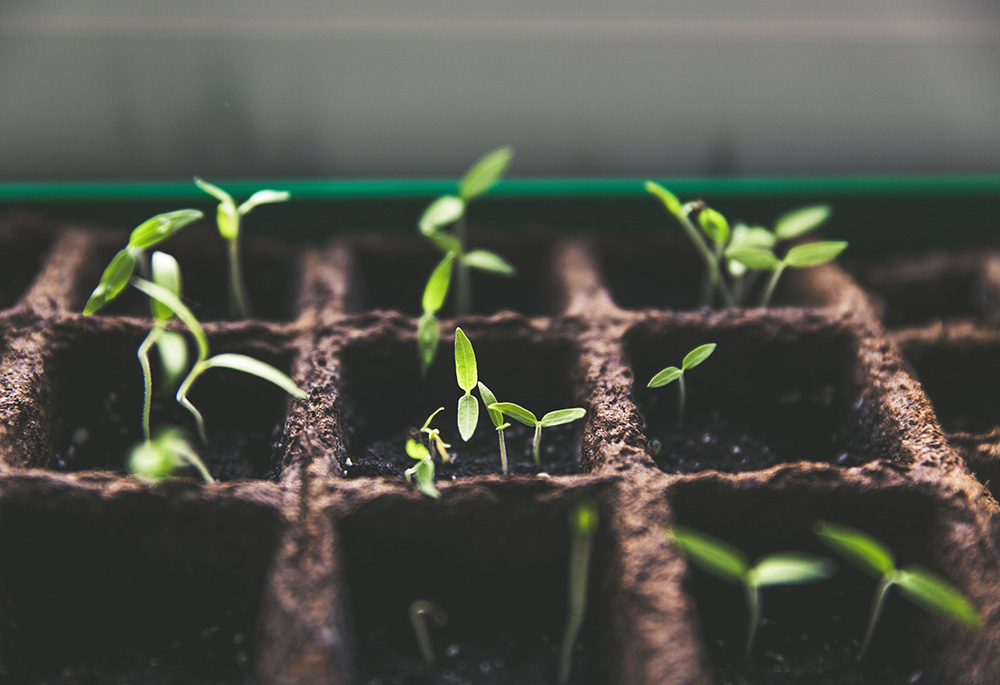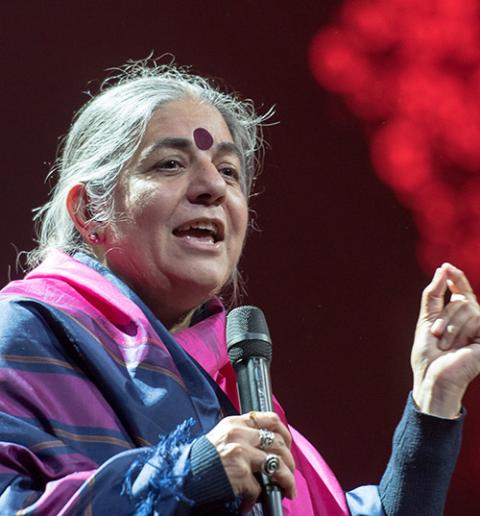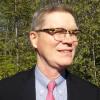
(Unsplash/Markus Spiske)
The latest International Panel on Climate Change (IPCC) report on the science of climate change, the sixth update of its ongoing research, begins by stating that the climate crisis is "unequivocally" caused by fossil fuel burning and forest destruction, among other human activities that have abruptly altered crucial Earth systems.
The IPCC cautions that possible collapse of Earth's ecological systems, including major Atlantic Ocean currents, ice caps and the Amazon rainforest, "cannot be ruled out."
Tempting as it may be, we need not resort to apocalyptic cynicism. We can literally sow seeds of life and hope, individually and communally, that renew Mother Earth's regenerative powers. Sowing seeds, whether in one pot or a larger garden, is a way of practically living degrowth — pursuing an economic system based on policies that promote sustainability, rather than constant growth — and cultivating the radical abundance of God's creation.
As I write, I stand on the unceded and occupied land of the Mohican people, "land of the waters that never run still," or as white settlers here in Massachusetts call it, the Housatonic River. I believe we must begin individual change where we are and acknowledge how capitalism and colonization have divided us from Mother Earth and ourselves.
On recent walks along these "waters that never run still," my partner and I have lamented how people fishing must throw the fish back into the river because the water and fish have been contaminated by the former General Electric plant that dumped PCBs into the water from 1932 through 1977.
Our greatest hope for the life of Mother Earth, however, is in our own individual and collective rootedness in her awesome regenerative life systems.
Advertisement
Vandana Shiva, the renowned physicist, ecological activist, mother and award-winning author, celebrates how "if we are part of the Earth, every being — it doesn't matter whether they're human beings or not — but every being, every tree, every animal, every microbe is part of an amazing Earth family. ... There are no hierarchies in Earth democracy."
Shiva summons us to see how we are Earth "interbeings" who are intricately interconnected with all other forms of life, and who need to claim our true common identity and power to live in harmony and reciprocity with Mother Earth.
Our greatest power, individually and communally, Shiva contends in the video "Saving Seeds at Home," is in saving and sowing diverse seeds in our own homes and gardens. "The nature of seed," she explains, is "to multiply, to be shared," yet "all the new laws are designed to prevent us from saving seed to make seed uniform rather than diverse and to remove human intelligence from the reproduction and breeding of seed."
She invites each of us to become "a scientist in service of life on Earth" to end the ways in which "colonization of this planet and life on it is taking place through seed, through genetic engineering and patenting."
Discussing how agribusiness has created drought in California and does violence against the Earth and people, Shiva urges us to "get out of the supermarket, get out of the drought, get out of seed-slavery, get out of food slavery" and embrace "soil freedom by knowing your seed, saving it," even "if it's one pot on your windowsill, just a terrace in the city" or creating a garden in your yard or community.

Vandana Shiva speaks at the Global Citizen Festival in Hamburg, Germany, in 2017. (Wikimedia Commons/Frank Schwichtenberg)
In her book Who Really Feeds the World?: The Failures of Agribusiness and the Promise of Agroecology, Shiva notes that 40% of greenhouse gas emissions causing climate change are from fossil-fuel-based industrial agriculture. She adds that agribusiness is waging war on biodiversity — by eviscerating as much as 90% of agricultural biodiversity — and a war on humanity by creating a food system in which 1 billion people are "permanently hungry" and another billion suffer from "food-related diseases" like obesity.
By contrast, Shiva writes, local farming communities produce 70% of the world's food and "reflect diverse agroclimatic features" that protect biodiversity while developing diverse food cultures at the same time.
The movement Shiva initiated in India, Navdanya, has created more than 150 seed banks and trained more than 1 million farmers in "chemical-free, biodiversity-based organic farming." This kind of local organic farming has "increased nutrition twofold," and organic farmers earn 10 times more than commodity growing farmers because they do not waste money on chemicals and commercial machinery, Shiva says.
Indeed, Shiva's leadership of the Navdanya organization in India since 1987 demonstrates the power of Gandhian nonviolent transformation through cultivation of seed diversity, living soil and food sovereignty.
Rishi Kumar, a farmer who has helped create hundreds of gardens in Los Angeles and serves as executive director of the Sarvodaya Institute, promotes gardening as a way of individual and collective healing, offering tips for starting at home.
The Sarvodaya Institute also cultivates gardening through its mission to end "colonial aggression against communities of color as the underlying cause of damage and destruction to our body" and commits to the "disassembly and decomposition of colonial power structures through all of our work." Struggles for racial and ecological liberation are one, as I argue in my forthcoming book.
As we take individual initiative to sow living seed and soil, may we recognize Jesus' invitation to understand how the kingdom of heaven is like a mustard seed, which is the smallest of all seeds, but when it grows becomes a large bush where the birds of the sky come and dwell in its branches, as Matthew's Gospel says.
May all birds of the sky, bees, worms and grubs of the soil, and all creatures dwell in our gardens throughout Mother Earth, so all of our human and nonhuman kin may thrive. We are called to sow, share and multiply seeds of hope and healing for ourselves and all life.








